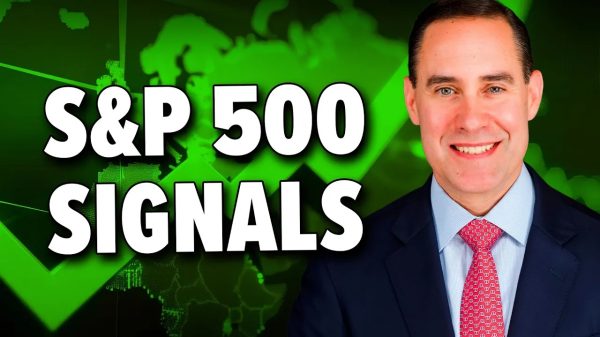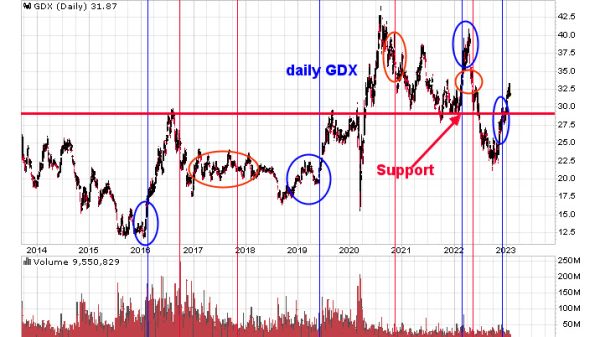Last year, the Atlantic’s Derek Thompson summarized the national mood succinctly: Everything is terrible, but I’m fine.
He was reacting to research published by the Federal Reserve evaluating how confident Americans were about their own finances and the nation’s more broadly. What the data suggested was that there was a gap, that while three-quarters of Americans said their own finances were doing all right, only a quarter said the national economy was doing well.
On Monday, the Federal Reserve released the 2022 iteration of those same numbers. When Thompson was writing, there was a 54-point gap between confidence in Americans’ own finances and those of the nation generally and a 30-point gap with perceptions of the local economy.
Now, the gap with the local economy is 35 points, with fewer than 4 in 10 Americans saying their local economies are doing well. Only 2 in 10 Americans say the same of the national economy.
Everything is fine at home. But step out into the community or consider the national economy? Americans are much less sanguine.
Those sentiments are not necessarily incompatible. It’s obviously true that household finances are not measured on the same scale as the economy nationally or even locally. But as Thompson noted then, this pattern emerges elsewhere, too.
Consider crime. In October, I noted the gap in perceptions of crime locally and nationally. Gallup recorded concern about increased crime at its highest level on record, but it was nonetheless the case that concern about rising crime nationally still easily outpaced it.
The traditional standard-bearer for this effect is the divergence between views of one’s own member of Congress and views of Congress overall. The American National Election Studies poll conducted around federal elections show that the gap in perceptions of one’s own Congress member and the body overall has widened from 14 points in 2014 to nearly 50 points in 2020.
Thompson also pointed to Gallup polling comparing how satisfied Americans were with their personal lives vs. their perceptions of the direction of the country. In 2002, the gap was 20 points. In 2022, it was 68 points.
In summary, then, most Americans feel okay about their own economic situation, satisfied with their lives and approve of their members of Congress. But they also worry about the national economy, the direction of the country, Congress’s performance in general and rising crime nationally.
What’s interesting is that the timelines don’t always line up. Personal satisfaction has been diverging from satisfaction with the country since at least 2001. The gap between personal finances and the national economy widened in 2020. The gap in approval between Americans’ own members of Congress and Congress in general began to open dramatically after 2004.
One thread between these effects, though, is partisan polarization. Partisan satisfaction with the direction of the country is heavily dependent upon the party of the president. So is sentiment about the national economy. When I wrote about crime in October, I noted that much of the surge in concern about crime was driven by Republicans.
To this idea we can add the scale of the polarization. Consider that presidential approval ratings no longer measure approval in the way they once did because partisans tend to land at the extremes in their evaluations. Since the first term of Barack Obama, members of the president’s party have been strongly supportive of him, and members of the opposition strongly opposed. Approval ratings now move in narrow ranges, often driven mostly by the views of independents.
Perhaps, then, Thompson’s aphorism is better phrased as “I’m fine, but everyone else is terrible.” My bank accounts are holding up, but President Biden is ruining the economy. My member of Congress is effective, but the Republican majority in the House is destroying America. Crime here is fine, but Democratic mayors are letting criminals run amok. That sort of thing.
This depends not only on partisanship but on the nationalization of news. Local news outlets have shriveled in favor of large national ones. (Ahem.) Candidates for local office are as likely to be asked their opinions on national events and movements as they are about potholes. Attention has turned to the communal conversation, as have critiques. Given how unlikely Americans are to know people who disagree with their politics, the moderating effects of personal relationships play much less of a role.
There’s an unhappy implication if we assume these causes are to blame: Fixing the gap between personal and national perceptions means fixing America’s broader divides. In other words, it means probably not fixing the gap any time soon.





























